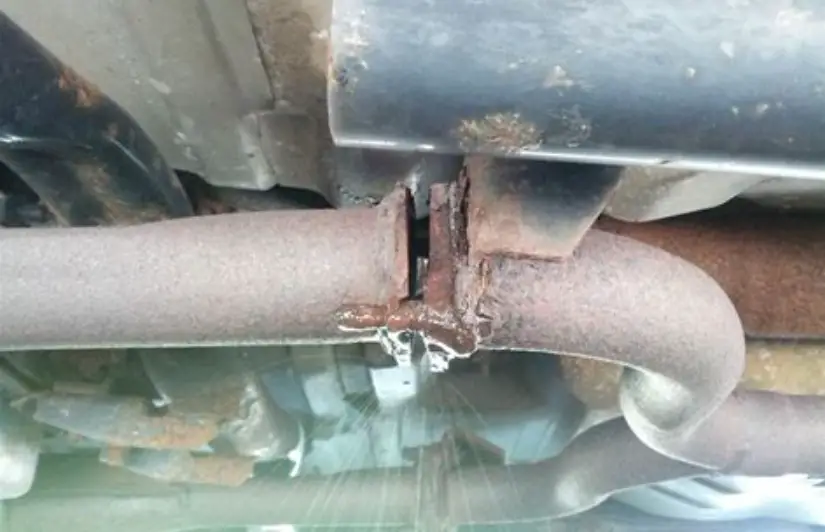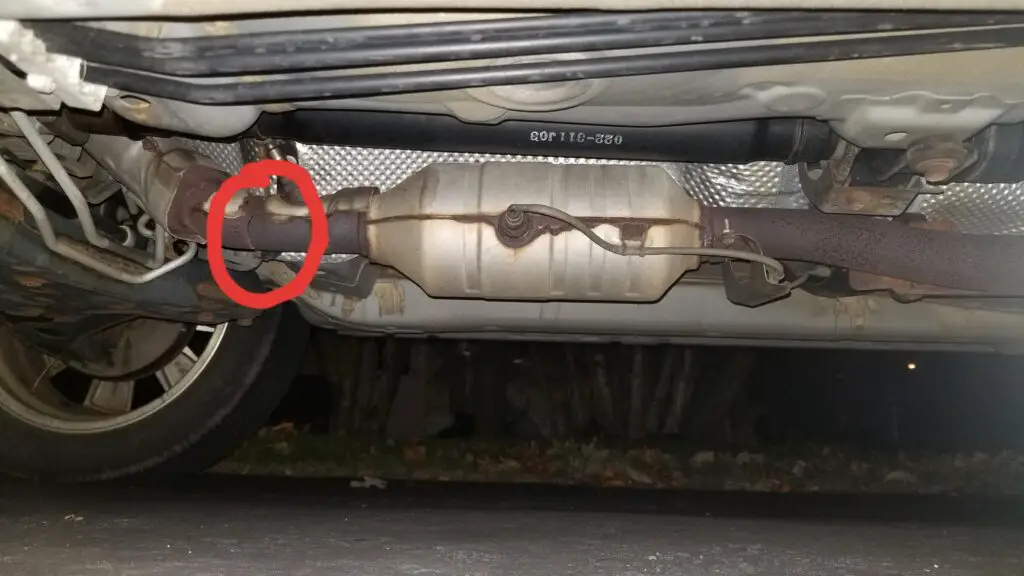Exhaust pipe broke off catalytic converter issues can cause loud engine noise, reduced performance, and failed emissions tests. It’s important to repair or replace the damaged section promptly to avoid further engine or legal problems.
When the exhaust pipe breaks off at the catalytic converter, it’s more than just a noisy inconvenience—it can lead to serious performance issues, legal trouble, and costly repairs if not addressed promptly. This in-depth guide will walk you through the causes, symptoms, repair options, and preventive measures related to a broken exhaust pipe at the catalytic converter.

Contents
- 1 Exhaust Pipe Broke Off Catalytic Converter
- 2 Common Causes of Exhaust Pipe Breakage at the Catalytic Converter
- 3 Symptoms of a Broken Exhaust Pipe at the Catalytic Converter
- 4 Repair Options for a Broken Exhaust Pipe at the Catalytic Converter
- 5 Preventive Measures
- 6 Frequently Asked Questions
- 7 Conclusion
Exhaust Pipe Broke Off Catalytic Converter
The exhaust system is a critical component of your vehicle, responsible for directing harmful gases away from the engine and reducing emissions. The catalytic converter, situated within this system, plays a vital role in converting toxic gases into less harmful substances. When the exhaust pipe breaks off at the catalytic converter, it disrupts this process, leading to various issues.
Common Causes of Exhaust Pipe Breakage at the Catalytic Converter
Common causes of exhaust pipe breakage at the catalytic converter include:
1. Corrosion and Rust
Over time, exposure to moisture, road salt, and other environmental factors can cause the exhaust pipe and catalytic converter to rust. This corrosion weakens the metal, making it susceptible to breakage.
2. Physical Damage
Hitting road debris, speed bumps, or potholes can physically damage the exhaust system. Such impacts may cause the exhaust pipe to crack or detach from the catalytic converter.
3. Poor Installation or Manufacturing Defects
Improper installation or manufacturing defects can lead to misalignment or weak joints between the exhaust pipe and catalytic converter, increasing the risk of separation.
4. Excessive Vibration
Worn-out engine mounts or exhaust hangers can cause excessive vibration, putting stress on the exhaust system and potentially leading to a break at the catalytic converter connection.
Symptoms of a Broken Exhaust Pipe at the Catalytic Converter
Identifying the signs early can prevent further damage:
- Loud Exhaust Noise: A sudden increase in exhaust noise, often described as a roaring or rumbling sound.
- Reduced Engine Performance: Loss of power or acceleration due to disrupted exhaust flow.
- Decreased Fuel Efficiency: The engine may consume more fuel to compensate for the loss of backpressure.
- Check Engine Light: A detached exhaust pipe can trigger the check engine light due to altered emissions readings.
- Visible Damage: Upon inspection, you may notice the exhaust pipe hanging or completely detached near the catalytic converter.

Repair Options for a Broken Exhaust Pipe at the Catalytic Converter
Repair options for a broken exhaust pipe at the catalytic converter include:
1. Welding
If the break is clean and the metal is not excessively corroded, welding the exhaust pipe back to the catalytic converter is a viable option. This method restores the structural integrity of the exhaust system.
2. Exhaust Clamps and Repair Sleeves
For minor separations or temporary fixes, exhaust clamps or repair sleeves can hold the pipe and catalytic converter together. However, this is generally a short-term solution.
3. Replacement
In cases of severe damage or corrosion, replacing the affected sections of the exhaust system, including the catalytic converter, may be necessary. This ensures long-term reliability and compliance with emission standards.
Preventive Measures
Preventive measures to avoid an exhaust pipe breaking off at the catalytic converter include:
- Regular Inspections: Periodically check the exhaust system for signs of rust, damage, or loose connections.
- Avoid Road Hazards: Be cautious of road debris and drive carefully over speed bumps and potholes.
- Maintain Engine Mounts and Hangers: Ensure that engine mounts and exhaust hangers are in good condition to minimize vibrations.
- Prompt Repairs: Address any exhaust system issues immediately to prevent further damage.
Frequently Asked Questions
Here are some FAQs about exhaust pipe breakage at the catalytic converter –
Q1: Can I drive with a broken exhaust pipe at the catalytic converter?
While the vehicle may still run, it’s not advisable. Driving with a broken exhaust pipe can lead to harmful gas exposure, decreased performance, and potential legal issues due to increased emissions.
Q2: How much does it cost to repair a broken exhaust pipe at the catalytic converter?
Repair costs vary based on the extent of the damage and labor rates. Welding may cost between $100 to $300, while replacing parts can range from $500 to over $1,000.
Q3: Is it legal to drive without a catalytic converter?
In many regions, it’s illegal to operate a vehicle without a functioning catalytic converter due to emission regulations. Always check local laws before making modifications.
Q4: Can I use exhaust tape as a temporary fix?
Exhaust tape can serve as a temporary solution for minor leaks but is not suitable for securing a detached exhaust pipe. Professional repair is recommended.
Q5: How long does it take to repair a broken exhaust pipe at the catalytic converter?
The repair duration depends on the method used. Welding may take a few hours, while part replacements could require a day or more, especially if parts need to be ordered.
Conclusion
A broken exhaust pipe at the catalytic converter is a serious issue that affects your vehicle’s performance, safety, and legal compliance. Knowing the causes and symptoms can help you take prompt action to repair the damage. Regular maintenance and inspections are key to preventing such problems in the future.